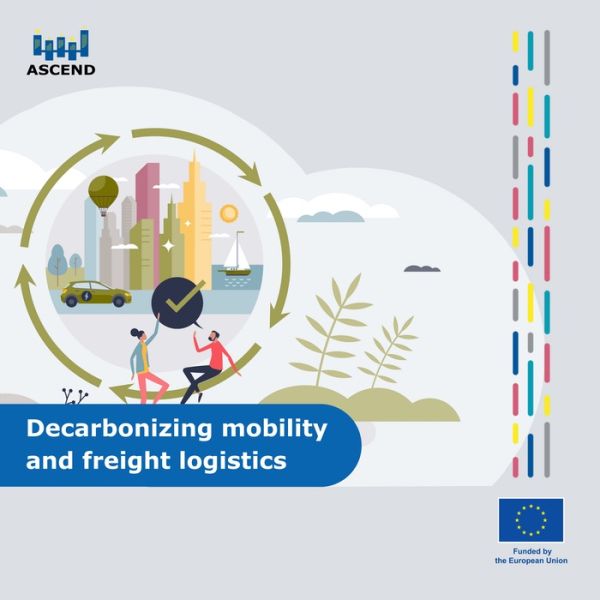
Clean mobility plays an important role in making cities cleaner and healthier for their residents.
ASCEND will achieve this through four strategic avenues
Enhancing Micro-Mobility in Public Spaces: Redesigning and greening public spaces, installing smart lighting and enabling no-car districts.
Advocating Car-Sharing and Electromobility: By encouraging the use of shared electric vehicles, ASCEND strives to minimise the carbon footprint associated with private transportation.
Decarbonizing of freight logistics: ASCEND undertakes measures to decarbonize freight transportation, contributing to a more sustainable urban landscape.
Sharing public spaces with “nature”: ASCEND envisions the harmonious coexistence of public spaces with nature. This approach encompasses integrating green spaces and natural elements into urban design, fostering a holistic environment that benefits both residents and the ecosystem.
Reducing car traffic is a critical step to curbing carbon emissions. ASCEND’s strategy involves expanding bike lanes and footpaths, increasing the use of shared e-vehicles, and shifting away from individual car usage.
Additionally, ASCEND recognises the gendered dimension of mobility behaviour, an aspect embraced by both Lighthouse Cities and Multiplier Cities. Measures include for example attention to safety through adequate design and public lighting. Public spaces will be co-designed with citizens, fostering a sense of shared ownership in the urban transformation process.
ASCEND’s Mobility approach not only leads to a decrease in carbon emissions, but it will improve living conditions, reduce cost, noise and pollution. In embracing clean mobility, ASCEND's vision extends beyond transportation to encompass the broader goal of enhancing the overall quality of life within Positive Clean Energy Districts.
